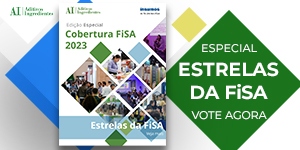Fast-food giant McDonald’s is joining forces with Starbucks’ existing scheme, The NextGen Cup Consortium and Challenge, convened by Closed Loop Partners. McDonald’s now joins Starbucks as a founding member of the group in a bid to develop a global recyclable and/or compostable cup solution. This announcement follows recent commitments by both companies to drive innovation of their packaging and help reduce waste. The brands estimate that 600 billion coffee cups wind up in landfills each year.
McDonald’s is committing US$5 million in partnership with Closed Loop Partners to help launch the NextGen Cup Consortium and Challenge, bringing the total funds dedicated to the Challenge to US$10 million.
The Challenge kicks off in September and invites innovators, entrepreneurs, industry experts and recyclers to submit their ideas for the next generation of recyclable and/or compostable cups. Awardees will receive acceleration funding up to US$1 million based on key milestones. Up to seven of the awardees will enter a six-month accelerator program to help scale their solutions.
“McDonald’s is committed to using our scale for good to make positive changes that impact our planet and the communities we serve,” says Marion Gross, Senior Vice President and Chief Supply Chain Officer, McDonald’s USA. “We are excited to join Starbucks and Closed Loop to help solve this pressing challenge as collaboration is key to finding a scalable, lasting global solution.”
“We are proud to come together with industry partners like McDonald’s to drive innovative, scalable solutions for cup waste,” says Colleen Chapman, Vice President of Global Social Impact focused on sustainability for Starbucks. “A better cup will benefit the entire industry, and we invite others to join us as we move these efforts forward.”
NextGen builds on years of work in the industry and is a critical step in the development of a global end-to-end solution that will potentially allow the 600 billion cups globally to be diverted from landfills and given a second life.
“There has never been a greater need to tackle how we source and recover materials. McDonald’s participation is a strong step forward in building momentum from major brands to come together and develop innovative approaches to materials waste,” says Erin Simon, Director of Sustainability Research and Development (R&D) and Material Science at World Wildlife Fund, US. “Working together across the entire value chain of these major companies will allow us to create a comprehensive and lasting solution to this critical conservation challenge.”
Food Industry push to reduce single-use plastics
There is a strong push globally for the food industry to reduce its waste, especially when it comes to single-use plastics such as straws. Starbucks itself has banned the use of plastic straws in 28,000 stores worldwide in a move that is expected to eliminate more than one billion plastic straws annually. The company will instead offer a strawless lid or paper or plastic compostable straw alternative.
Across the pond, the European Commission announced new rules to combat increasing levels of plastic pollution in the oceans. The EU-wide rules aim to target the ten highest polluting single-use products, which together constitute 70 percent of all marine litter items. The directive states that where alternatives are readily available and affordable, single-use plastic products will be banned from the market. The ban will apply to plastic cotton buds, cutlery, plates, straws, drink stirrers and sticks for balloons which will all have to be made exclusively from more sustainable materials instead. Single-use drinks containers made with plastic will only be allowed on the market if their caps and lids remain attached.
While in the UK, major retail players have united under the UK Plastics Pact with plans to eradicate single-use plastic from the supply chain. More than 40 significant players signed it in the food and non-food industry, including leading UK retailers, Tesco, Sainsbury's, Morrisons, Aldi, Lidl, M&S and Waitrose. However, a handful of companies in the pact came under heat last week after an investigation uncovered that nearly one-third of plastic packaging used in many supermarkets was either non-recyclable or difficult to recycle.
Retail and food service companies are engaging with mounting regulatory and consumer pressure over plastic waste, with results hopefully coming swiftly.
